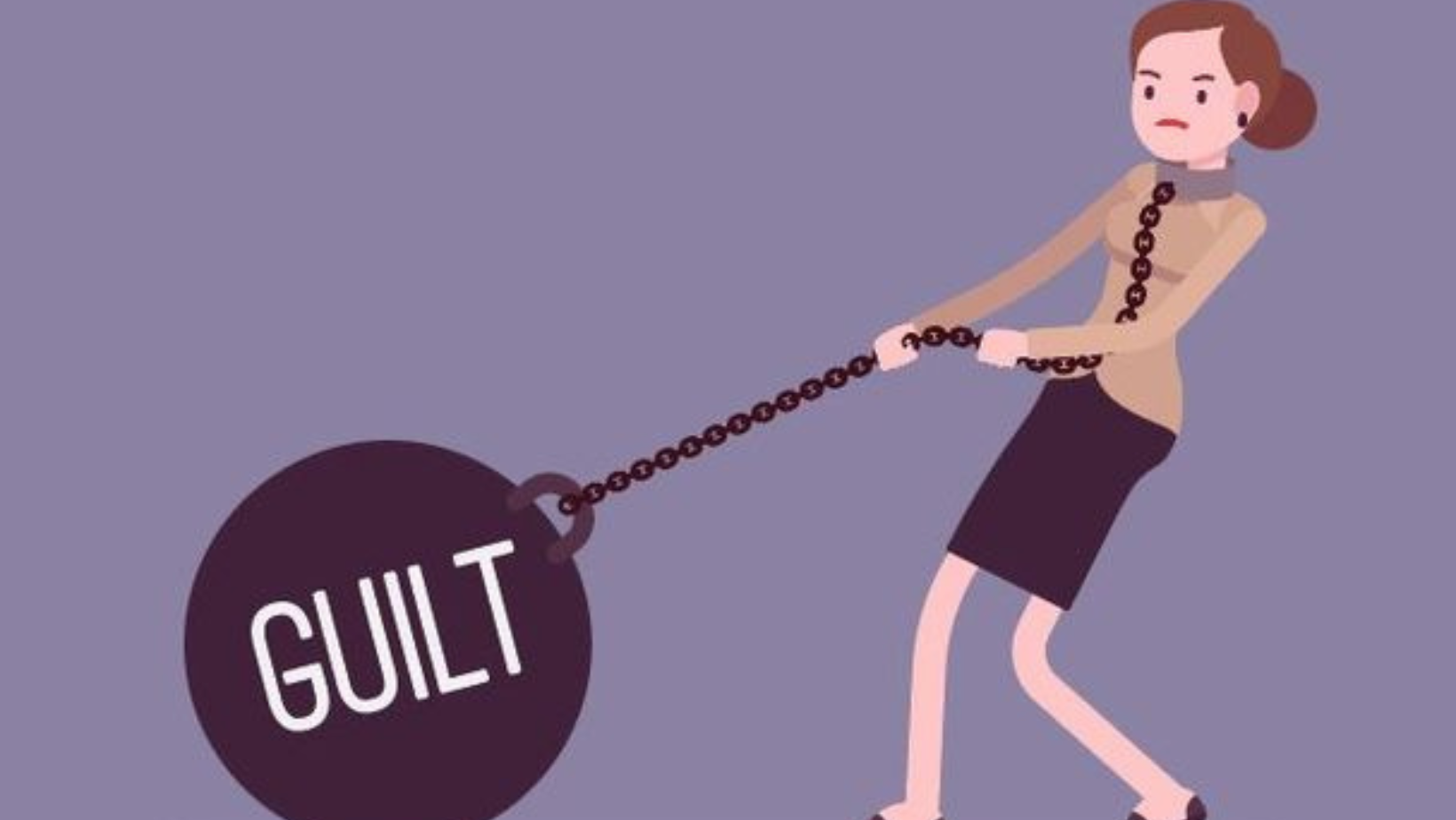
Yesterday I was having a chat with a family member who had said something in a group that she wished she hadn’t, a silly mistake – and it was eating her up ! You know that feeling ?!
We’ve all felt it: That sinking feeling in the pit of our stomachs when we make a mistake. When we let someone down or when we don’t uphold the commitments we’ve made. It’s called guilt – and if you’re overcome by this powerful emotion, you’re overdue for a lesson on how to stop feeling guilty.
A little guilt can actually be good; It regulates our behaviour, keeping us in line with what we feel is acceptable and the person we want to be.
WHY do we feel guilty?
The reasons people feel guilty (and the amount of guilt they feel) vary widely from person to person.
Generally, we feel guilty when we break the ‘rules’ – either the rules of society or our own personal code of ethics. For one person, that could mean breaking plans with a friend at the last minute. For another, it could mean stealing, cheating or worse.
The amount of guilt we feel is likely based on both “nature” (genetics) and “nurture” (the way we were raised). No matter how much guilt you feel or the reasons why, understanding how to stop feeling guilty begins with a set of actions you can take starting today.
We are all human and we will make mistakes. We’re far from perfect, but most of us don’t need to go through life feeling burdened by guilt.
Here’s how to overcome guilt and start practicing acceptance of yourself and others.
STEP 1. REFLECT AND ACKNOWLEDGE
Begin by acknowledging the feeling of guilt and its source. Reflect on the specific actions or decisions that led to this emotion. Understanding the root cause is crucial in addressing and resolving the guilt.
STEP 2. ASSESS INTENT VS. IMPACT
Evaluate whether your actions were genuinely intentional or if they were a result of circumstances beyond your control. Sometimes, guilt stems from unintended consequences, and recognising this distinction can provide perspective.
STEP 3. TAKE RESPONSIBILITY
If your actions indeed led to harm or transgression, taking responsibility is key. Apologise and make amends where possible. By doing so, you demonstrate accountability and a willingness to rectify the situation.
STEP 4. LEARN AND GROW
Transform guilt into a learning opportunity. Consider the lessons you can derive from the experience. This shift in perspective can help you make better decisions in the future and foster personal growth.
STEP 5. PRACTICE SELF-COMPASSION
Treat yourself with the same kindness and empathy you would offer to a friend. Remember that everyone makes mistakes, and harbouring guilt excessively can be counterproductive. Instead, focus on self-improvement and the positive actions you can take moving forward.
By following these steps, you can work towards releasing the grip of guilt and fostering a healthier emotional state. Remember that progress may take time, so be patient and persistent in your efforts.
“Guilt can either hold you back from growing, or it can show you what you need to shift in your life.”
Have a great week ?
